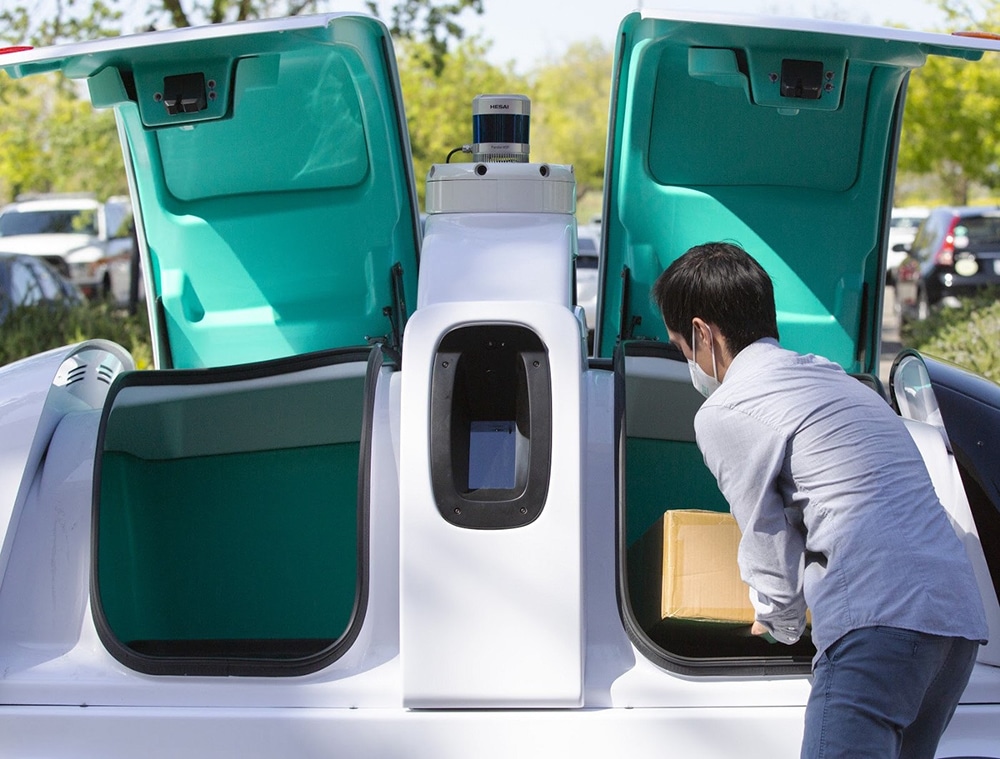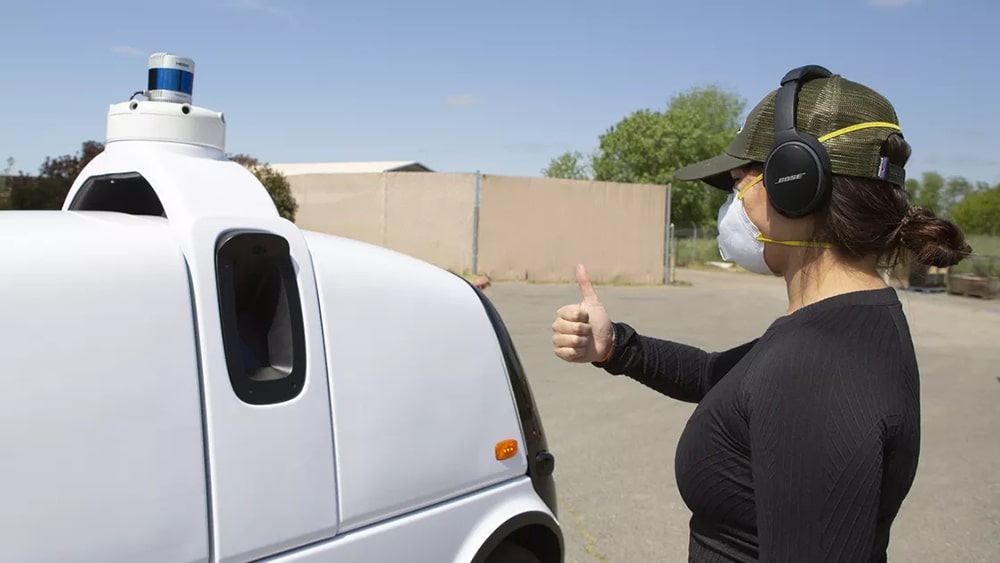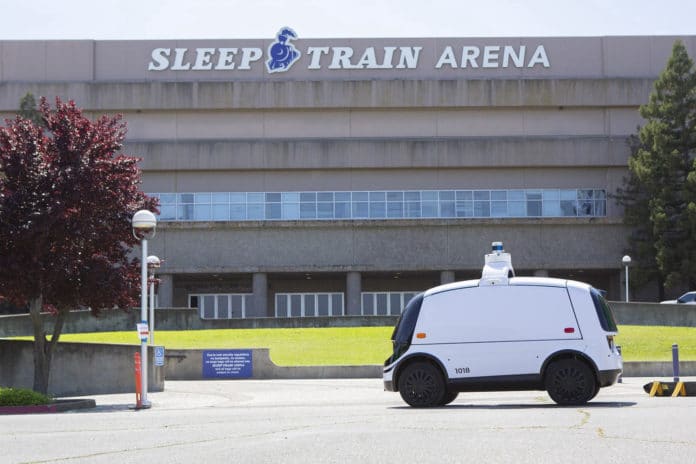The coronavirus pandemic forced organizations to develop unmanned vehicles to temporarily cease their core business. However, Nuro, an autonomous vehicle startup founded by two ex-Google engineers, realized that they could help healthcare providers deliver with their prototype R2 vehicles. These lightweight autonomous electric cars can provide contactless delivery of essential medicines, medical supplies, and clean linens.
The company has set up its small fleet of R2 robotic vehicles for the automated delivery of food, medicines, and personal protective equipment to two California stadiums, which have been converted into treatment facilities for COVID-19 patients.

A small but symbolic aid, especially at a time when the whole world is rethinking its innovations – in various capacities.
Medical workers load and unload unmanned vehicles at different ends of the route. As a rule, Nuro vehicles require the recipient of the delivery to enter a code on the touch screen to unlock the doors of the car. But in order to make it truly contactless, the employee only needs to lift his thumb up into the car’s camera, and the Nuro operator monitoring the live feed will open the doors remotely.

It should also be noted that these vehicles travel at lower speed: 8 km/h (5 mph) outdoors, 4 km/h (2.5 mph) indoors than their potential speed of about 40 km/h (25 mph). They move on fixed routes, mostly made of private roads, to reduce the probability of encountering obstacles. They operate in a protected environment, in short, we would say almost experimental: quite different, and simplified, compared to that with which self-driving cars should be compared. But in this case, more than the evolution of technology, the purpose matters.
Nuro was recently approved to test its driverless delivery robots on public roads in California – only the second company to receive such permission from the state.
“We are mindful that contactless delivery services like ours are not going to solve this crisis. Not even close,” said Dave Ferguson, Co-Founder, Nuro in a blog post. “But we are grateful to have the opportunity to play a small part and have been inspired by what we have seen along the way.”
